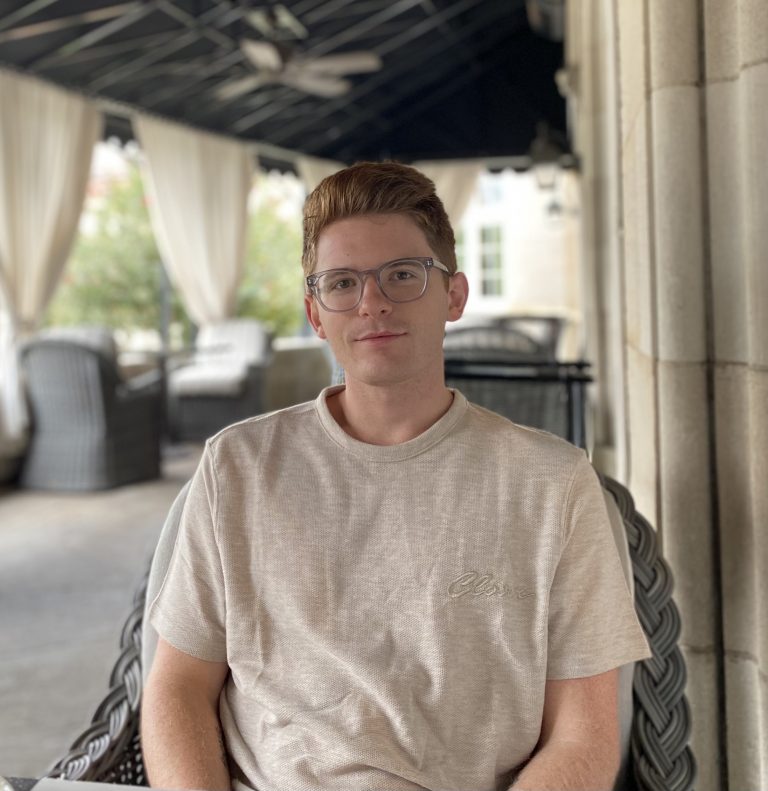Reflections on Voting: Making Sense of Your Own Democratic Power in Rural America
In recognition of the 50th Anniversary of the 26th Amendment as another landmark piece of Civil Rights legislation, the Rural Youth Catalyst Project is excited to partner with CIRCLE’s Youth Expertise Series: Fulfilling the Promise to offer the voices and perspectives of rural young people.
We start this week with a post from southwest Virginia native Frankie Edwards, who was selected as a 2020 delegate to the Rural Assembly Youth Summit.
We’re also hosting a livestream discussion with Circle on Nov. 17. Register and join us.

By Frankie Edwards
When I was a kid, it always felt ceremonious when my parents would take me with them to their polling location, which happened to be my elementary school’s gymnasium. My former elementary school is within the Blue Ridge Mountains in a town called Snowville. Before my parents would head off to their 9 to 5 jobs, it was convenient for me to tag along and watch them cast their votes.
I proudly stood beside them as they proved their identity and stared in awe as their ballots were handed to them. As we would walk to one of the several tiny booths, I would watch as a continuous stream of adults flowed in and out of the gymnasium. Democracy filled the hearts and minds of everyone in those early morning hours on election days.
In 2008, I was thirteen years old, but still paid close attention to the Presidential election between former Senator Barack Obama and the late Senator John McCain. I remember the iconic “Yes We Can” chants echoing throughout the crowds that would gather for Barack Obama’s speeches. When it was certified that Barack Obama would become the President-Elect and eventual 44th President of the United States, I was truly inspired by the democratic process that led up to this moment in our nation’s history. This election was made possible by the continuous fight for democracy and depended on the 15th, 19th, 24th, and the 26th Constitutional Amendments.
Another major democratic moment that happened in my youth was in the summer of 2015, when the U.S. Supreme Court struck down all state bans on same-sex marriage. Obergefell v. Hodges is one of many important landmark rulings that took far too long. However, after that critical victory for the LGBTQ+ community, I finally felt free to come out as the gay man I hid on the inside. The votes of the American people indirectly led to this moment in our history. I will be forever grateful to the democratic structure of our nation that led to this equality.
My commitment to performing my civic duty was strengthened by watching my parents cast their votes in several elections. Parents can have a significant impact on their children’s view of our democracy. Thus, there is a need for parents to engage their children in elections. My parents created a sense of wonder in elections for me. Now, as a young adult, I still get excited about going to my polling location on election days. It is the one time a year that I can directly affect democracy. That is a powerful feeling for me.
Unfortunately, I think that young adults in rural communities have a challenging time making sense of their own democratic power. The governance in rural communities tends to fall in the hands of a select few, which oftentimes tend to be elderly individuals (60 years and older). This form of governance is referred to as a gerontocracy. In fact, the United States federal government can be seen as a gerontocracy. With the continued governance and re-election of older generations, younger generations are not given the chance to redirect our democratic fate.
One of the benefits of social media is that it can easily be used to engage young eligible voters. I am by no means a social media expert (in fact I do not have TikTok…gasp!). However, as a young adult who often uses Instagram, Twitter, Snapchat, and Facebook, I can still see the impact social media has on the dissemination of election information. However, it is easy for misinformation to quickly spread on social media. This is one of the major downsides of social media. People, especially young people, can craft their social media feed to show them only what they want (factual or not).
All youth votes matter. It is hard to say what future American elections are going to look like. If the past two presidential elections have been any sign, our country is in for a bumpy ride. Younger generations are going to experience the long-term effects of future election outcomes, whether that is the effects from climate change or future pandemics. It is more important, now than ever, to stay informed on upcoming elections, and to use what sometimes feels like our last democratic power: vote.
The Rural Youth Catalyst Project is an independent working group aligned with the Rural Assembly. Working nationally, the Rural Youth Catalyst Project aims to strengthen and create opportunities that allow rural and Native youth to realize their hopes and dreams while remaining in or returning to their communities.
Collaborate with us: For additional information about the Rural Youth Catalyst Project or to collaborate with us please contact Kim Phinney and Kathy Moxon. Kim can be reached at [email protected] and 802-922-2274. You’ll find Kathy at [email protected] and 707-498-9502.







